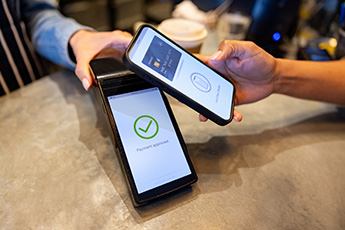Did you know that a group of toads is called a knot? This seems a bit odd since you don’t often see toads in a cluster, let alone “tight as a knot.” But, the next time you see a group of toads, you’ll know what to call them.We have found that many small businesses are calling themselves international businesses these days, especially with the boost of e-commerce last year. The global market gives many businesses a second chance when their market slows down or changes direction. In fact, the Small Business Administration notes, “Two-thirds of the world’s purchasing power is in foreign countries.”While conducting international business is not without challenges, many small businesses believe it is worth it. Last year, even with many small businesses closed for periods of time, the percentage of small businesses making international payments increased to 43% from 2019’s 37%, according to Mercator Advisory Group. Community financial institutions (CFIs) should be aware of the international payment needs of these customers to support them well. Otherwise, they may find payment options elsewhere.Various payment methods used
Back in the day, small businesses made payments for goods and services abroad with a USD-based check. Those days are over. There are several options available to small businesses for international payments and they are using them.
Back in the day, small businesses made payments for goods and services abroad with a USD-based check. Those days are over. There are several options available to small businesses for international payments and they are using them.
- The majority of the time, businesses are using business credit cards (50%) and business debit cards (43%).
- Yet, the use of PayPal payments jumped to 25% in 2020 vs. 13% in 2019.
- Small business international wire transfers also increased last year, from 10% in 2019 to 17%.
Increasing competition in payment solutions
While small businesses can be conservative in testing new payment options from the competition, they may overcome their hesitancy as they rise in popularity. Several of these players — Square, Strip, and PayPal — are available to use across our northern border, for Canadian payments. Since Canada is the top export market for the US with 17.9% of all exported goods in 2020, those payment solutions could be useful for small businesses with Canadian customers. How can CFIs keep these customers from straying to the competition for international payments?
While small businesses can be conservative in testing new payment options from the competition, they may overcome their hesitancy as they rise in popularity. Several of these players — Square, Strip, and PayPal — are available to use across our northern border, for Canadian payments. Since Canada is the top export market for the US with 17.9% of all exported goods in 2020, those payment solutions could be useful for small businesses with Canadian customers. How can CFIs keep these customers from straying to the competition for international payments?
- Leverage the holistic customer relationship. You have been supporting them since the beginning and through the pandemic. You are available on the phone, through email, or in person. Will those other payment solutions provide them with that?
- Remind them of your comprehensive service offerings, not just international payments. You also provide them with services such as cash management, remote check deposit, online bill pay, lock box services, and more.
- Use a credible partner for your international payment provider, ensuring that your customers can rely on a secure solution. While many options are available, many of them are not tested and true. Providing your business customers with that peace of mind for their international payments is priceless. If you need a credible partner, we are happy to help.
As you check in with your customers, make sure to ask about their international payment requirements. As the world economy moves forward, they will be able to rely on you more than ever before.




